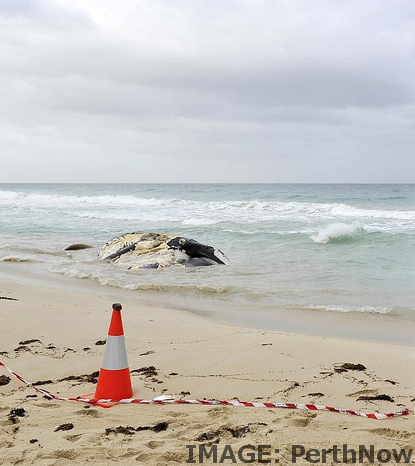Weighty problem brings costs, risk to WA councils
 WA councils say the State Government is ignoring a clear public safety issue, by failing to help when whale carcasses wash ashore.
WA councils say the State Government is ignoring a clear public safety issue, by failing to help when whale carcasses wash ashore.
Local governments want the dead whales towed out to sea, but say they cannot afford to do it themselves.
Meanwhile, the carcasses are endangering the community and costing Councils thousands in clean-up bills, the WA Local Government Association (WALGA) says.
WALGA has been lobbying the State Government on the issue for years, saying it has an obligation to keep the community safe by removing dead whales from State waters.
WALGA President Mayor Troy Pickard said the most recent incident of a whale carcass washing up on Scarborough Beach in recent days highlighted that there was still no effective solution in place.
“The Minister for Fisheries conceded last October that WALGA’s suggestion of towing whale carcasses away from populated areas before they beached was a logical solution,” Mayor Pickard said.
“Given there is no impediment under Federal laws for State Government intervention, it is disappointing that the Department of Parks and Wildlife has once again failed to take any action.
“What we are left with is the double jeopardy of the community being unnecessarily put at risk by sharks coming close to shore and Councils being forced to bear the cost of removing whale carcasses from local beaches.”
Mayor Pickard said the cost to Councils of removing whale carcasses typically ran into the tens of thousands of dollars.
“In addition to the financial cost, the public inconvenience of closing beaches while the clean-up effort takes place places a significant resource burden on Councils,” Mayor Pickard said.
“However, the most serious impact is the risk to public safety.
“The State Government has been determined in its efforts to remove the danger posed by sharks swimming close to shore.
“Whale carcasses consistently attract a large number of sharks close to shore, but to date, the State Government has taken no decisive action and unfortunately, the risk remains.”








 Print
Print